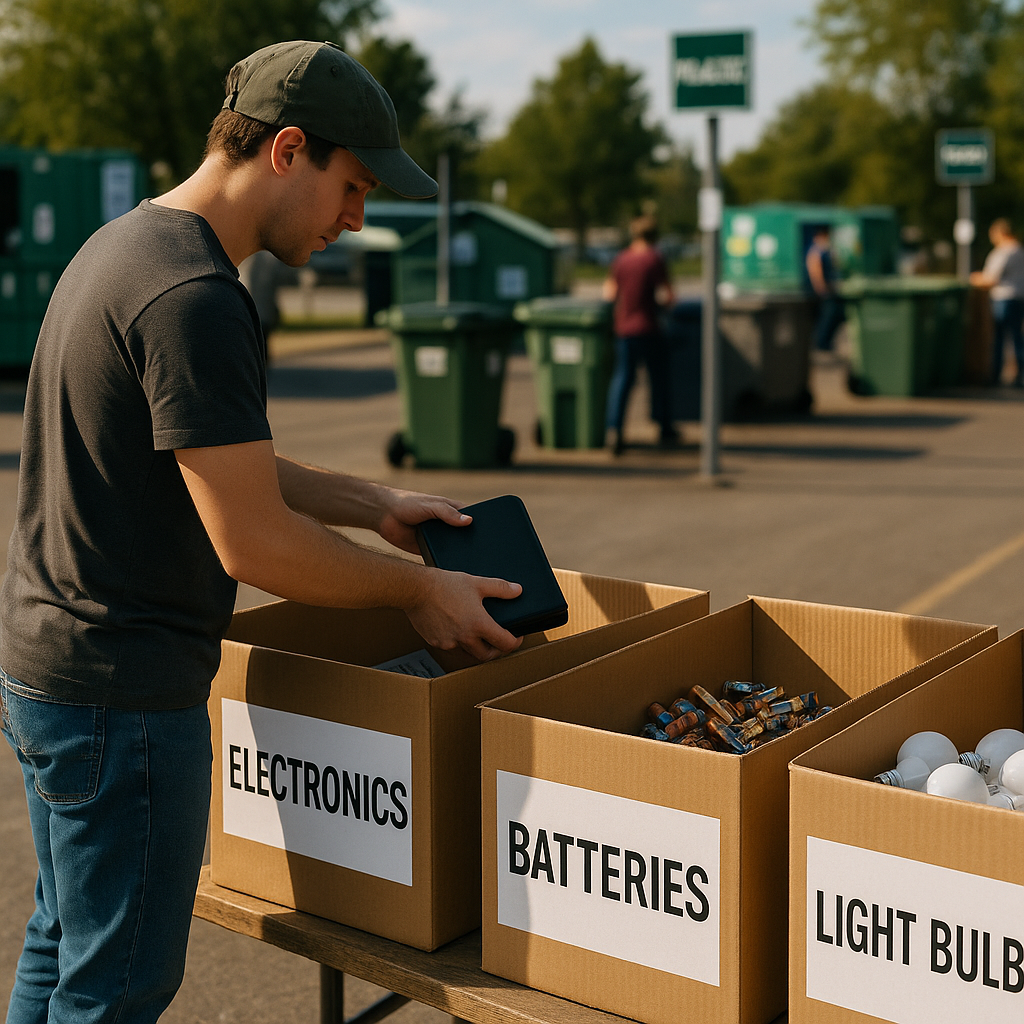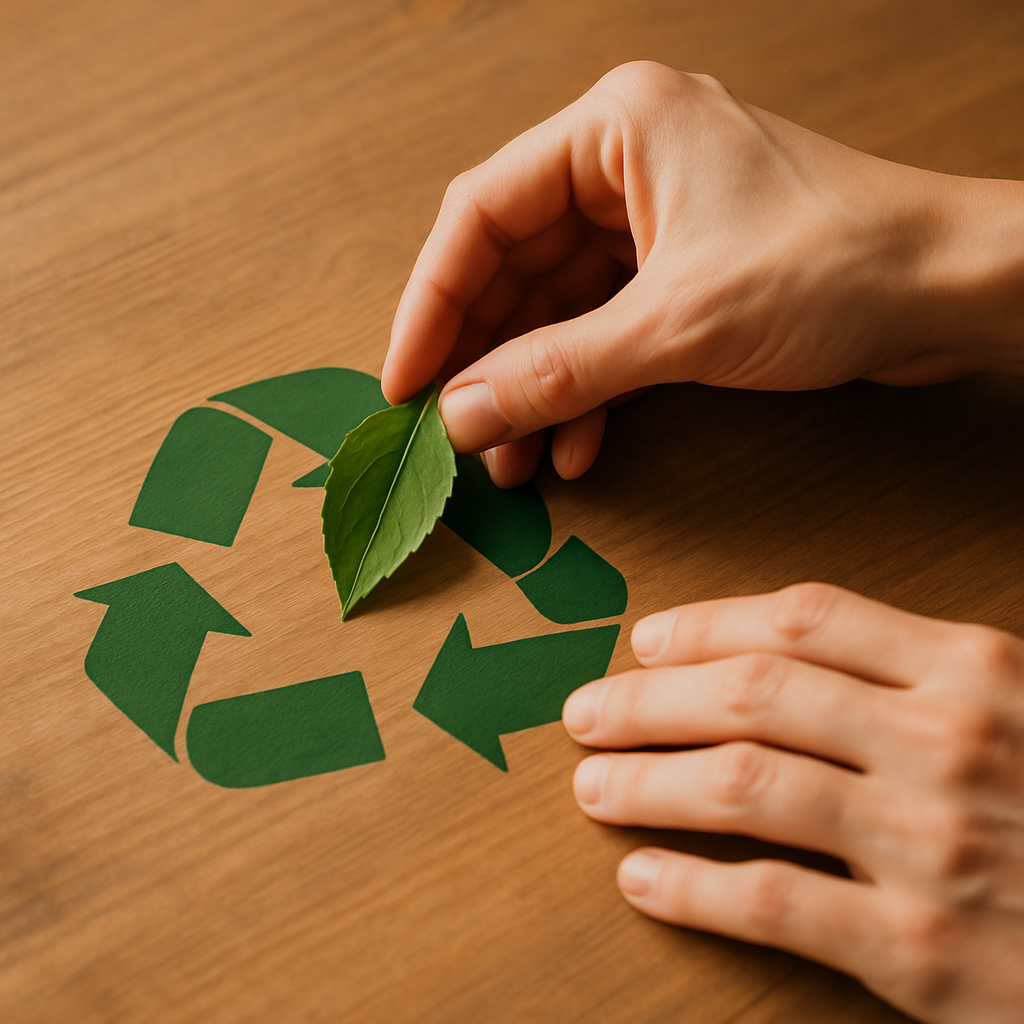5901 Botham Jean Blvd, Dallas, TX 75215
How to Prepare Your Items for Recycling
August 31, 2025Every day, we generate waste that doesn’t need to end up in landfills. Recycling provides a practical solution for turning these materials into new products while conserving natural resources. Understanding what can be recycled is the first step toward effective waste management.
Common recyclable materials include paper, cardboard, plastic bottles and jugs, metal cans, and glass containers. These items form the backbone of most municipal recycling programs across the country. Knowing which materials your local program accepts helps ensure your recycling efforts make a real difference.
The good news is that many everyday household and business items are recyclable. Paper products like newspapers, magazines, and office paper can typically be recycled. Many plastic containers marked with recycling symbols #1 (PET) and #2 (HDPE) are recyclable. Aluminum and steel cans, as well as glass bottles and jars, are also widely accepted for recycling programs nationwide.
How Should Recyclable Items Be Prepared?
Proper preparation of recyclables ensures they can be effectively processed at recycling facilities. When recyclables are contaminated with food residue or liquids, they can spoil entire batches of otherwise recyclable materials. Follow these guidelines to make your recycling efforts count.
Empty Your Containers
Remove all food and liquid contents from containers before recycling. Even small amounts of residue can contaminate other recyclables during processing. Scrape out food containers with a spatula or paper towel to remove as much residue as possible.
Clean Your Recyclables
Give containers a quick rinse to remove remaining food or beverage residue. You don’t need to use hot water or soap. A quick rinse with cold water is sufficient for most items. For stubborn residue, let containers soak briefly in used dishwater rather than wasting fresh water.
Dry Before Recycling
Shake off excess water and allow items to dry before placing them in your recycling bin. Wet paper and cardboard can become moldy and ruin other recyclables. Even a few drops of liquid can damage paper products during transportation and processing.
Keep Items Loose
Place recyclables loose in your bin. Do not bag your recyclables, even in plastic bags marked as recyclable. Plastic bags and wrap jam sorting equipment at recycling facilities, causing costly delays and potential safety hazards for workers.
Flatten Cardboard Boxes
Break down and flatten cardboard boxes before placing them in your recycling bin. This saves space in your container and makes collection more efficient. Remove any non-recyclable packing materials like styrofoam or plastic film first.
Remove Certain Components
Some items require special preparation. Remove metal caps from glass bottles and recycle them separately. Remove plastic film from packaging. Separate paper from plastic windows in envelopes when possible.
Check Local Guidelines
Recycling rules vary by location. What’s recyclable in one community may not be in another. Contact your local recycling program or visit their website to learn specific requirements for your area. Many municipalities provide detailed guides about what can and cannot be recycled.
Remember the rule: when in doubt, find out! If you’re unsure whether an item is recyclable, check with your local recycling program rather than wishfully placing it in the recycling bin. Incorrect items can contaminate other recyclables and disrupt the entire recycling process.
How Can Difficult-to-Recycle Items Be Handled?

Some items fall outside standard curbside recycling programs but still need proper handling to avoid environmental harm. These special items require targeted recycling approaches to ensure materials are recovered properly.
Electronics Recycling Options
Electronic waste contains valuable materials like copper, gold and rare earth metals that can be recovered, but also contains hazardous components. Many retailers offer e-waste recycling services at no cost. Staples accepts a wide range of electronics including computers, phones, tablets, printers, and small appliances through their partnership with Call2Recycle. Best Buy also accepts most consumer electronics regardless of where you purchased them.
Before recycling electronics, remember to erase personal data from devices. Remove memory cards, SIM cards, and perform factory resets on phones and computers to protect your information.
Battery Disposal Solutions
Different types of batteries require different disposal methods. Rechargeable batteries (lithium-ion, nickel-cadmium) should never go in regular trash. These can be recycled at many retail locations including Home Depot, which partners with Call2Recycle to collect rechargeable batteries weighing up to 11 pounds.
For single-use alkaline batteries (AA, AAA, D), disposal rules vary by location. While many jurisdictions allow these in regular trash, California prohibits disposal of any battery type in household waste. When recycling batteries, tape the terminals of 9-volt batteries with electrical or masking tape to prevent fire hazards.
Plastic Bag and Film Recycling
Plastic bags and films cannot go in standard recycling bins as they tangle in sorting machinery. Instead, many grocery stores and retailers like Walmart, Target, and Kroger offer collection bins specifically for clean, dry plastic bags, wraps and films. These materials get recycled into products like composite lumber for decking and outdoor furniture.
Be sure bags are empty and free from food residue. Acceptable items include grocery bags, bread bags, dry cleaning bags, newspaper sleeves, and product wrap from paper towels and toilet paper.
Household Hazardous Waste
Products like paint, motor oil, cleaning solvents, pesticides and household chemicals require special handling. Never pour these down drains or place them in regular trash. Most counties operate household hazardous waste collection facilities or host periodic collection events.
For paint recycling, check with PaintCare, a nonprofit that operates paint recycling programs in several states. Used motor oil can often be returned to auto parts retailers like AutoZone or Advance Auto Parts who typically accept it for free recycling.
Clothing and Textile Recycling
For usable clothing and shoes, donation remains the best option. Organizations like Goodwill, Salvation Army, and local shelters accept clean, wearable items. For worn or damaged textiles, specialized recycling programs exist. H&M and North Face stores collect textiles in any condition for recycling. Some municipalities also offer textile recycling at drop-off centers.
When items can’t be reused as clothing, they can be converted into insulation, cleaning cloths, or carpet padding, keeping these materials out of landfills.
Finding Local Resources
Local solid waste authorities are excellent resources for recycling information specific to your area. Earth911.com provides a searchable database where you can enter your zip code and the item you want to recycle to find nearby options. Your municipal website likely includes details about special collection events and permanent drop-off locations for difficult-to-recycle materials.
For businesses with larger volumes of recyclable materials, consider contacting specialized recyclers who may offer pickup services for consistent streams of materials.
By taking the time to properly dispose of these challenging materials, you’re preventing pollution and conserving valuable resources. While it may require extra effort, these specialized recycling programs ensure materials are handled safely and responsibly.
Final Words

Recycling is one of the most impactful ways individuals and businesses can contribute to environmental sustainability. By learning which items are recyclable, preparing them correctly, and seeking out special programs for hard-to-recycle materials, you not only reduce waste but also help conserve natural resources and protect ecosystems. Every small action—whether rinsing a container, recycling batteries, or donating clothing—adds up to meaningful change.
Making recycling a consistent part of your daily routine ensures that valuable materials are kept in circulation instead of being wasted in landfills. With proper knowledge and effort, communities can achieve higher recycling rates and build a cleaner, more sustainable future for generations to come.
Ready to make a bigger impact with your recycling efforts? Call Okon Recycling today at 214-717-4083 for all your recycling needs.
